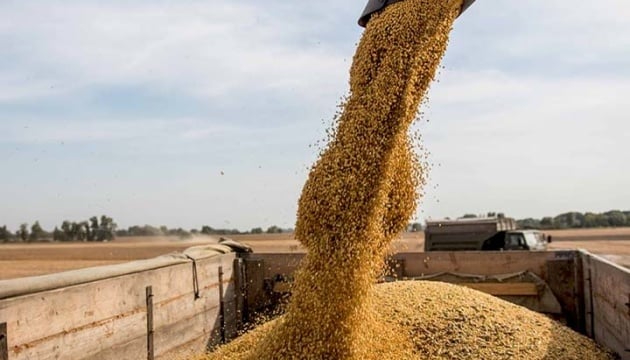May 16, 2025 | 10:31 GMT +7
May 16, 2025 | 10:31 GMT +7
Hotline: 0913.378.918
May 16, 2025 | 10:31 GMT +7
Hotline: 0913.378.918

Over the past few months, Polish farmers have held mass protests, in particular, opposing the transportation of Ukrainian agricultural products through the territory of Poland to third countries.
"The EU did nothing to help Polish farmers, and the effectiveness of the actions of new [agriculture] minister Robert Telus in the first hours [after the appointment] with the support of both the prime minister and the president, which was also the result of negotiations with President Zelensky, showed that we are capable of negotiating with Ukraine and temporarily suspending imports [of grain from Ukraine] at least until July," Deputy Minister of Agriculture of Poland Janusz Kowalski told TVP Info, Ukrinform reports.
The deputy minister expressed the opinion that the Polish-Ukrainian grain agreement "is only the first step." According to Kowalski, his Solidary Poland coalition party strongly defends the position that "a duty should be imposed on all agricultural products from Ukraine."
"We help Ukraine, but we have to be a transit country. All products should be sent through Poland, they should not harm Polish farmers, Polish producers, cause a food security crisis," Kowalski noted.
He also added that Minister Telus would meet with representatives of agricultural organizations from five other countries on the border on April 11.
As reported, Minister of Agrarian Policy and Food of Ukraine Mykola Solsky during a joint press conference with Minister of Agriculture and Rural Development of Poland Robert Telus on the border on April 7 said that Ukraine would suspend the export of wheat, corn, rapeseed, and sunflower to Poland until the new season. He noted that the procedures related to the export of Ukrainian agricultural products would be worked out during the next meeting with the Polish side. According to him, exports can only take place with the consent of the Polish side. The Ukrainian minister added that the issue of grain transit from Ukraine through the territory of Poland would also be discussed with the Polish side. According to him, the next meeting with the Polish side to discuss these issues will be held before the new harvest season.
In turn, the Minister of Agriculture and Rural Development of Poland said that he could meet with the Ukrainian minister again in a week to sign an agreement on solving the problem with Ukrainian crops.
Over the past few months, Polish farmers have held mass protests, in particular, opposing the transportation of Ukrainian agricultural products through the territory of Poland to third countries. They emphasized that a significant part of Ukrainian grain was not transported further by transit, but settled in Poland, thus reducing the purchase prices for the grain of Polish farmers in Poland. Under the pressure from farmers, the Polish government appealed to the European Commission to cancel zero duty on Ukrainian agricultural products. However, the European Commission did not comply with the main demand of Polish farmers to impose duties on Ukrainian agricultural goods and extended the agreement on duty-free import for Ukrainian goods for another year, until June 5, 2024.
On Wednesday, April 5, against the background of the Ukrainian grain crisis, Polish Agriculture Minister Henryk Kowalczyk resigned. On Thursday, Robert Telus was appointed as the new minister and convened on the same day an interdepartmental crisis headquarters to resolve the problem with the influx of Ukrainian grain into the Polish market.
(Ukrinform)

(VAN) Fourth most important food crop in peril as Latin America and Caribbean suffer from slow-onset climate disaster.

(VAN) Shifting market dynamics and the noise around new legislation has propelled Trouw Nutrition’s research around early life nutrition in poultry. Today, it continues to be a key area of research.

(VAN) India is concerned about its food security and the livelihoods of its farmers if more US food imports are allowed.

(VAN) FAO's Director-General emphasises the need to work together to transform agrifood systems.

(VAN) Europe is facing its worst outbreak of foot-and-mouth since the start of the century.

(VAN) The central authorities, in early April, released a 10-year plan for rural vitalization.

(VAN) Viterra marked a significant milestone in its carbon measurement program in Argentina, called Ígaris, reaching 1 million soybean hectares measured.